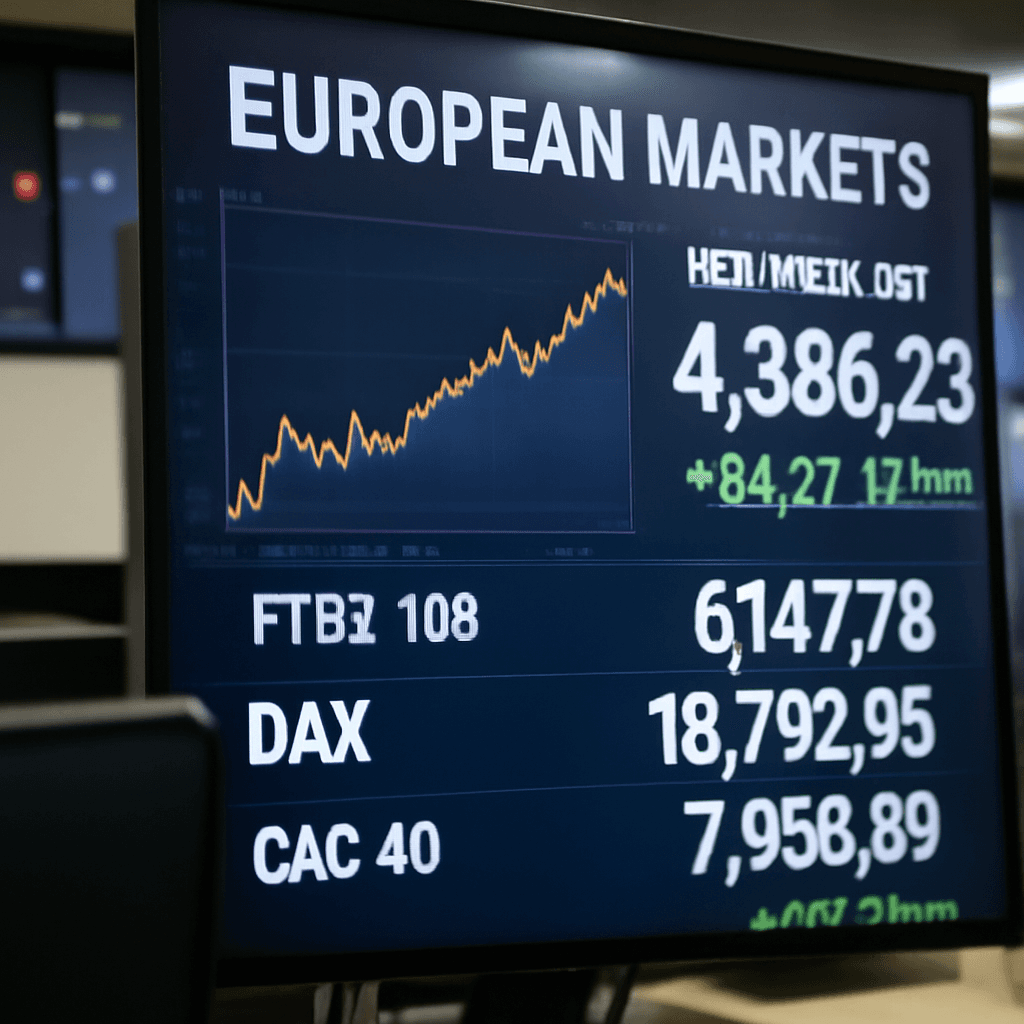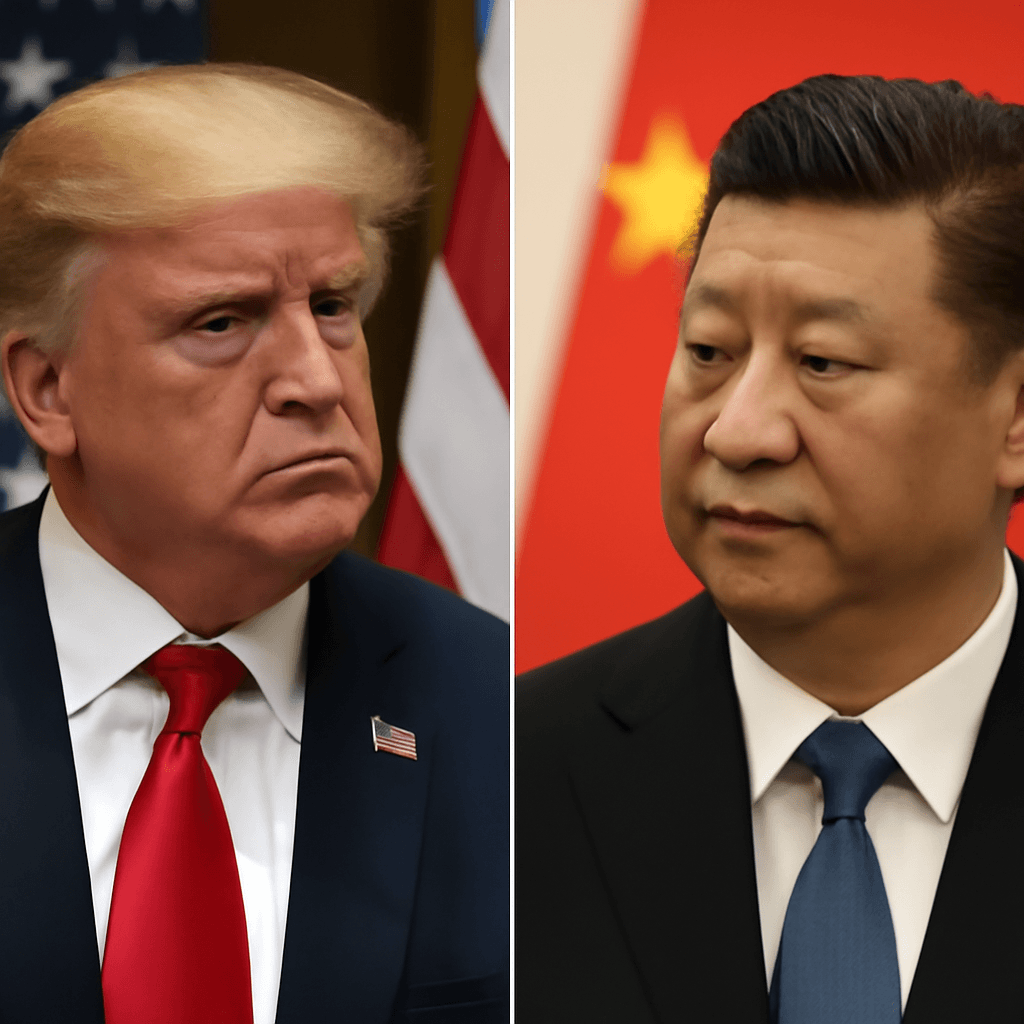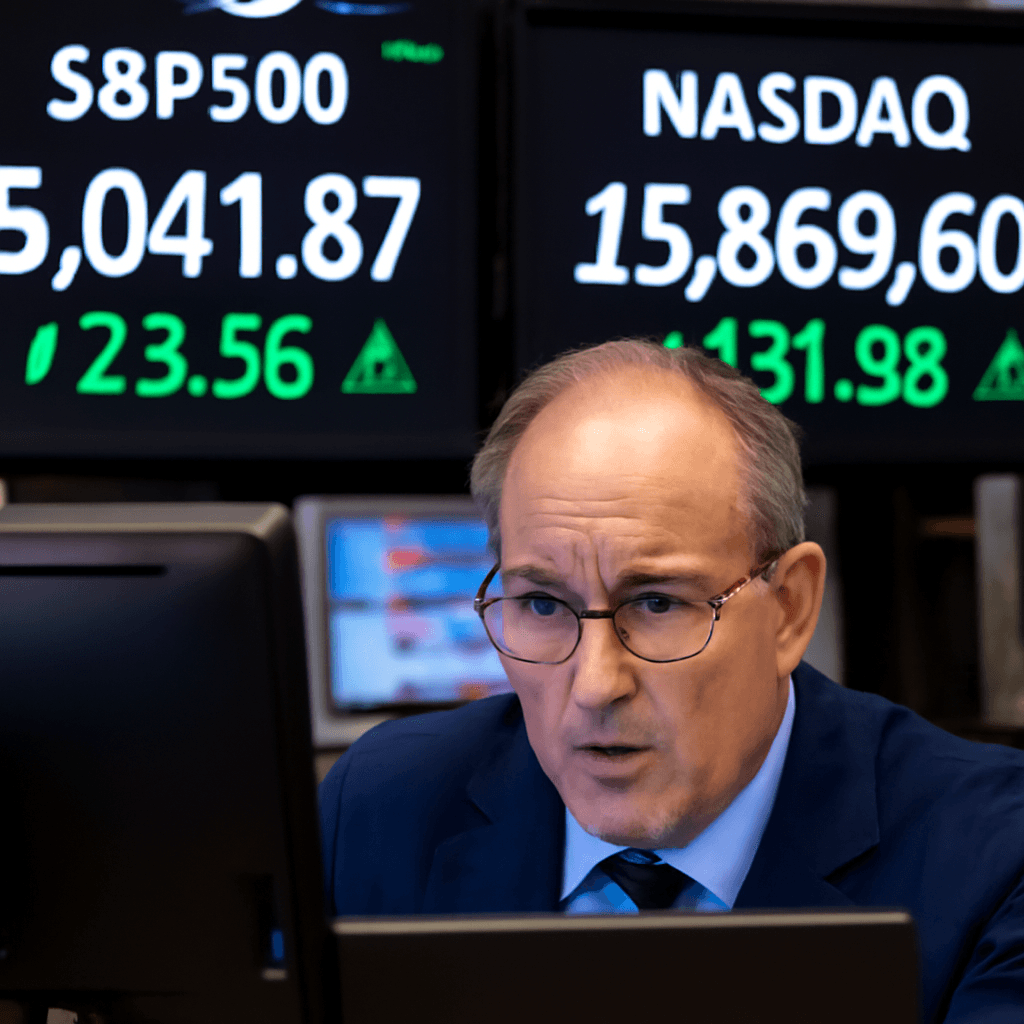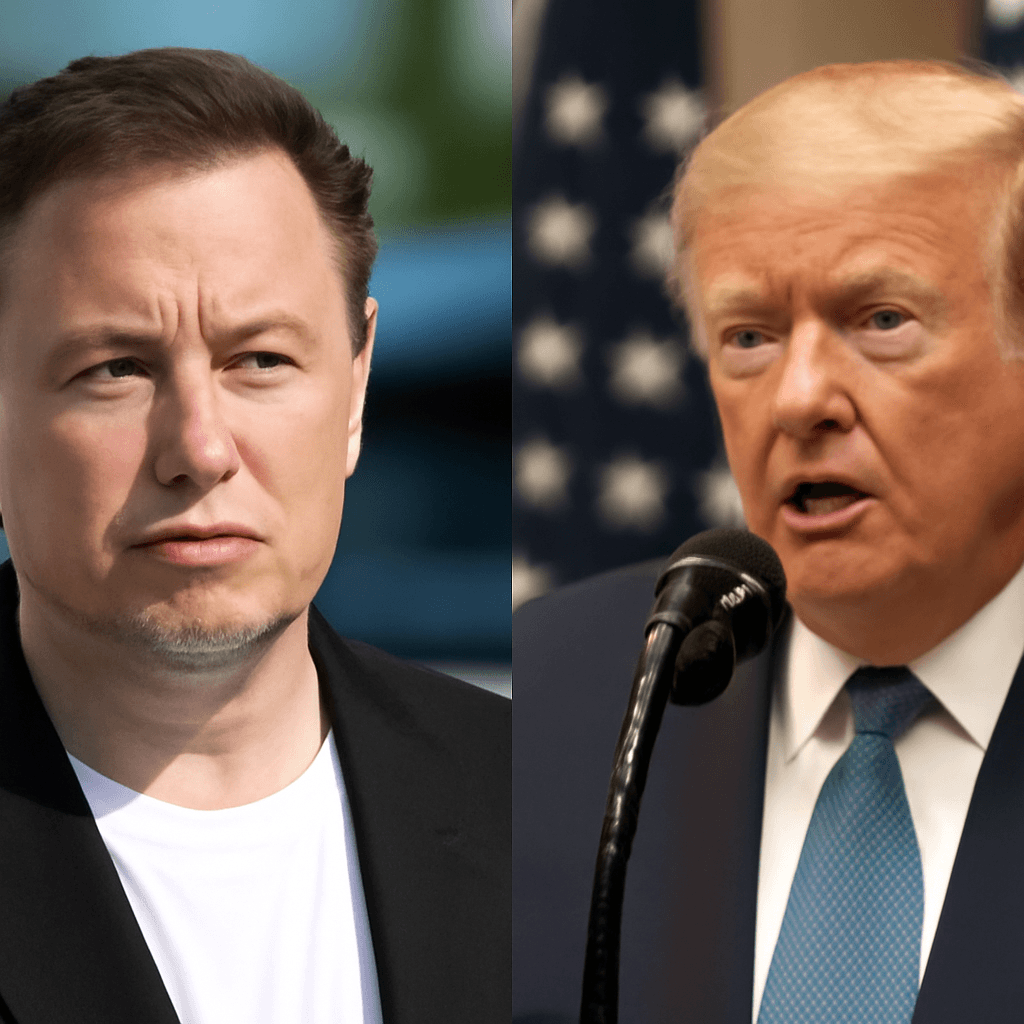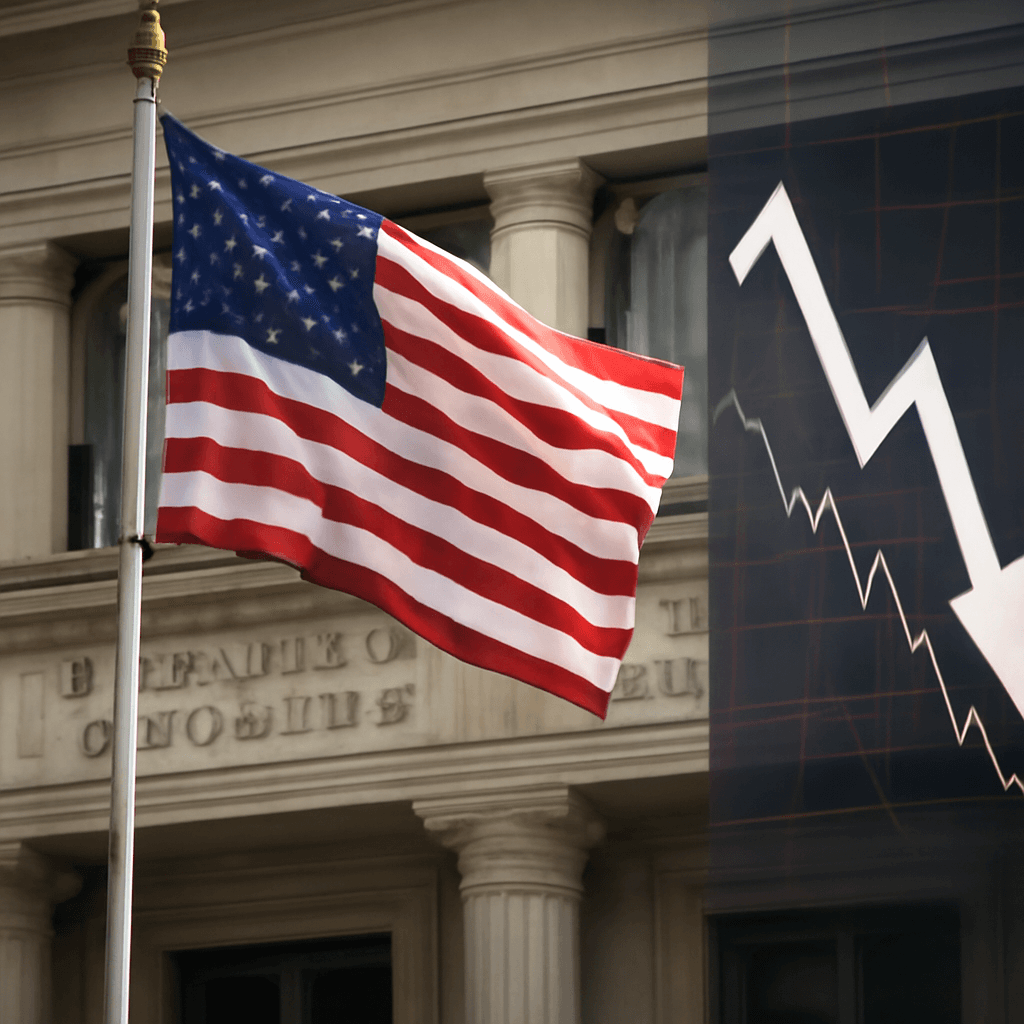European Markets Anticipate Gains Ahead of Inflation Report
London's stock market is expected to open slightly higher, supported by positive futures data suggesting modest gains across major European indices. Expectations point to London’s index rising by 6 points to 8,787, Germany’s DAX increasing by 42 points to 23,984, France’s CAC 40 inching up 6 points to 7,741, and Italy’s FTSE MIB climbing 106 points to 40,073.
The market focus remains divided between inflation trends within the eurozone and ongoing geopolitical tensions, especially concerning U.S. trade policies.
Potential Impact of U.S. Tariffs on Market Sentiment
The specter of U.S. tariffs has risen again as the U.S. President announced plans to double steel import tariffs from 25% to 50%, effective June 4. This move is expected to influence global trade dynamics, casting a shadow over investor confidence.
In parallel, trade negotiations between the U.S. and China continue to be closely monitored. Officials indicate that high-level discussions between the U.S. and Chinese leadership could occur imminently, which may impact market direction in the near term.
Eurozone Inflation Data Key to ECB Rate Decision
Investors are keenly awaiting flash inflation data for the eurozone, expected to reveal a cooling trend with inflation approaching 2% in May. If this trend holds, it may justify the European Central Bank’s anticipated decision to cut interest rates by 25 basis points at its upcoming meeting.
Such a rate cut would signal a more accommodative monetary policy stance aimed at supporting economic growth amid subdued inflation pressures.
Overnight Market Movements in Asia-Pacific and the U.S.
U.S. markets began June on a positive footing, with the major indices showing gains before the dip in early Tuesday trading:
- The S&P 500 increased by 0.41%
- The Nasdaq Composite advanced 0.67%
- The Dow Jones Industrial Average added 35.41 points, or 0.08%
However, overnight sessions saw some declines after Monday’s optimism was tempered by the escalation of trade tensions. China accused the U.S. of violating a temporary trade agreement, dampening hopes for a swift resolution between the two economic powers.
Meanwhile, China's manufacturing sector contracted sharply in May. The Caixin/S&P Global manufacturing Purchasing Managers' Index (PMI) fell to 48.3, its lowest since September 2022, missing forecasts of 50.6 and dropping from April's 50.4. This decline was driven largely by a steep reduction in new export orders, which investors attribute to the increasing impact of U.S. tariffs.
Conclusion
European markets are poised for a modest positive open amid mixed signals including a cooling eurozone inflation picture and rising global trade uncertainties. Key data releases and geopolitical developments will be critical to market trends in the coming days.

